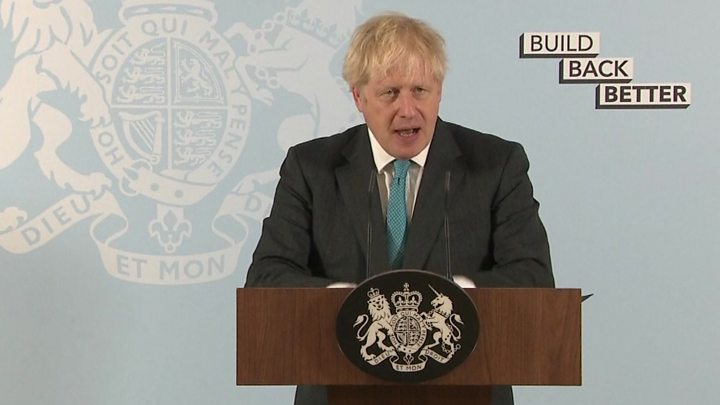This time, the strike was averted. The government agreed to delay reopening and to add a framework for relocating teachers and student from schools that could not meet precautionary criteria, Maluleke said.
From picket lines to Zoom calls and even jail cells, the pandemic has thrust teachers unions to the forefront of the debate over education during the coronavirus pandemic. How to safely reopen schools has become a central question, with school closures affecting well over a billion students, according to the United Nations, in addition to economies and daily life for working families.
Around the world, there has been “a lot of brinkmanship” with governments, said David Edwards, the general secretary of Education International, a Brussels-based international federation of teachers unions. “Teachers unions are trying to find a way to get their kids safely back to school.”
During the pandemic, most near-strikes never came to pass, Edwards said. When strikes proceeded, questions around reopening were rarely the only impetus, with the pandemic bringing to the forefront preexisting grievances.
From the front line to the picket line
Public-sector teachers unions around the world vary widely in role and makeup, shaped in part by local regulations, state-labor relations and the climate for political dissent. But a common thread ties many of them together: opposition to policies that have eroded public education, said Ellen David Friedman of Labor Notes, a grass-roots labor organization based in Detroit.
“We are now at a crisis moment where all over the world people are realizing the centrality of public education,” she said. “Teachers unions are the last line of defense.”
Edwards said he has observed three trends among his organization’s global affiliates.
In places with “high trust, high dialogue” — including Argentina, New Zealand and Scandinavian countries — teachers “haven’t needed to resort to industrial action,” he said. Instead, they have been in continuous talks with policymakers over when and how to reopen schools, and related issues such as sick pay and overtime.
In Britain, France, Germany and Greece, among other countries in Europe, some unions have been very vocal in opposition to official plans.
In countries with “a history of lack of dialogue and consultation with the government,” teachers have been more likely to threaten or resort to strikes, he said.
Then there are countries, including Brazil, Chile and the Philippines, where teachers have been “really butting heads with a government that is also pushing forward labor reforms taking away a lot of their rights,” Edwards said. In some cases, governments have moved to label teachers as “essential” workers to mandate they return to classrooms.
Last month, the Trump administration did that, declaring teachers “essential” front-line workers, in an effort to push schools to reopen. The Trump administration has pushed for restarting in-person classes, although new confirmed cases are still on the rise in much of the country. Last month, the Trump administration also declared teachers “essential” front-line workers, in an effort to push schools to reopen.
Preexisting conditions
For Jordan’s independent teachers union, the pandemic has been a bust.
In July and August, Jordanian authorities arrested around 1,000 teachers as it cracked down on the country’s largest independent trade union. The 140,000-member body had been leading waves of anti-government protests spurred by a pay freeze. By summer’s end, Jordanian authorities shut the Jordan Teachers’ Syndicate headquarters and dismissed and replaced its elected leadership.
The conflict preceded the pandemic: Independent unionizing in Jordan is rare, as the government seeks to co-opt any opposition. But the independent teachers union was a byproduct of the Arab Spring, a series of protests and uprisings that swept the region around 2011, and last year it held the country’s longest public-sector strike over demands for higher pay, among others. The government caved — then reneged.
This spring, without consultation, the government froze salary raises for public-sector workers, teachers included, as the virus-hit economy contracted. Teachers collectively took to the streets. The state, using its extensive emergency powers, responded with force, alongside media gag orders and criminal proceedings.
Elsewhere, tensions have built without yet coming to a head. In Madrid, the epicenter of Spain’s outbreak, teachers unions, unions representing teachers and others say a strike is possible if the regional government does not meet demands for more clarity — such as what safety guidelines, teacher protections and classroom restrictions will be required — as students return to the classroom.
In Denmark, in contrast, “cooperation between teachers, the unions and local authorities” led to smooth reopenings, Dorte Lange, vice president of the Danish Union of Teachers, told NPR in August.
“We were able as teachers’ trade unions to have a close cooperation with our government and with our employers,” Lange said. “And they listened to our worries, and they took them into consideration.”



More Stories
Colorado K-12 enrollment drops, prompting funding, well-being concerns
Portland school psychologists speak out against cuts, reassignments
With wait lists for emergency child care, Virginia lawmakers could increase funding